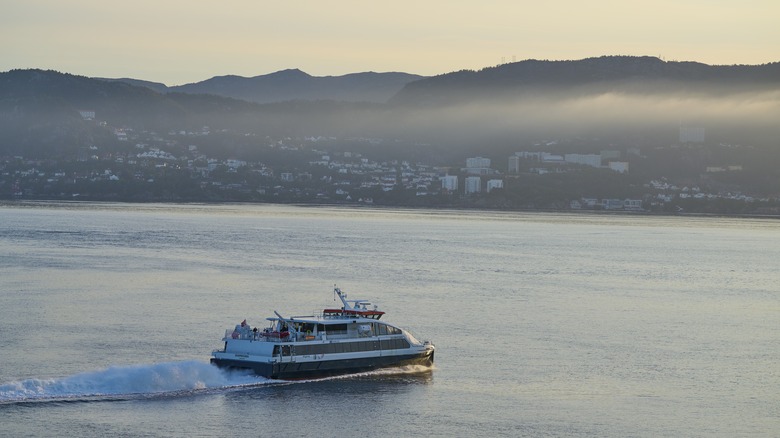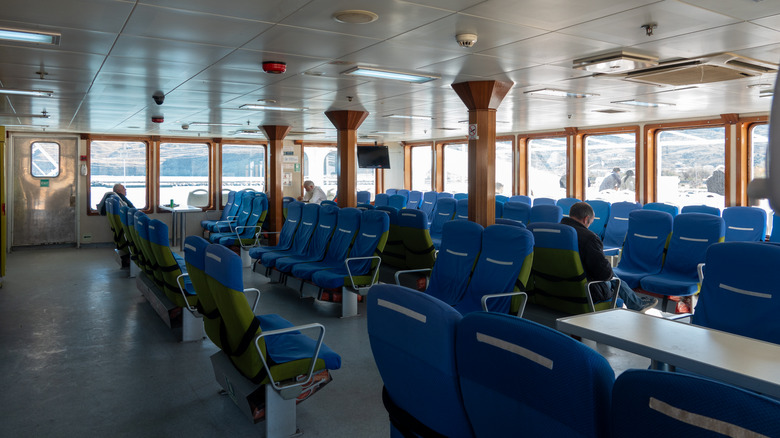Rick Steves Explains What To Know About 'Deck Class' Before Booking A Ferry In Europe
If you're looking for the best way to country-hop throughout Europe, don't overlook ferries as an excellent option for getting around. However, if you opt for a ferry, you'll likely come across the term "deck class" while booking your fare. While that might sound charmingly nautical, travel expert Rick Steves wants you to know it's not exactly luxurious. "A basic passenger ticket is 'deck class,' meaning you'll simply have to camp out wherever you can find room," Steves explains in his guide on European ferries.
In other words, deck class is the ferry equivalent of flying standby — you have access to the boat, but no assigned seat, no cabin, and definitely no bed. On shorter routes, this isn't a big deal. But for overnight ferries, which can stretch from 8 to 12 hours (or longer), it can be a tough way to travel, especially if you had expectations of stretching out comfortably and catching some shut-eye. That's why Rick Steves recommends looking into all of your ticket options before booking. "You can pay a little more for an assigned seat. A 'berth' (bed) costs more, similar to a night train."
If you're on a budget and aren't the type who minds roughing it in the airport on a long layover, deck class might be fine. Just know what you're signing up for. You might be sleeping on the floor or in a chair, often sharing public space with dozens of other travelers doing the same. Also, be aware of one common and risky ferry mistake: booking too close to a flight. Double check departure and arrival times, and give yourself a buffer day to be on the safe side.
Rick Steves says to plan ahead for overnight ferry bookings
Traveling on overnight ferries can be an excellent option for getting around — for example, it allows you to avoid the annoying aspects of island hopping around Greece by plane. Not only does it get you from point A to B, but it saves you money on accommodations. However, the experience can vary wildly depending on your ticket class and the ship. Rick Steves breaks down what to expect when it comes to accommodations onboard. "The more private your lodgings, the more you'll pay, especially if a toilet and shower are included in the compartment," he writes. "You usually can (and should) reserve overnight accommodations in advance. Some Greek island ferries, however, only allow you to reserve beds upon boarding."
Typical ticket classes range from economy pricing, aka deck class, to reserved seats and cabins. Frequent ferry travelers who opt for deck class often bring sleeping comforts with them, from sleeping bags to pillows and blankets. If you arrive early, you'll also have better chances of snagging a couch or bench somewhere. For a bit more comfort, the next tier up is usually assigned airline-style seats, which is just what it sounds like. If you're the type that can sleep on a plane and want to save some cash, this could be a good option, especially on a busier route.
If you want a berth in a shared cabin, that's generally the most affordable upgrade from deck class and reserved seats. It's a small bunk-style bed in a cabin often shared with three to five other travelers. For more privacy and comfort, you can reserve a private cabin, and it may even come with added perks like Wi-Fi or a TV. Ferries can be scenic, relaxing, and even romantic — just make sure you know what you're getting with your fare.

